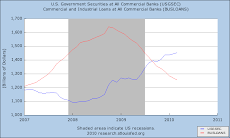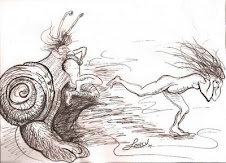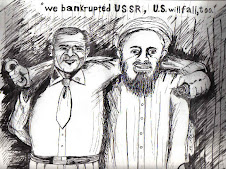 |
| A waste of thyme. |
In an article on Resilience.com , Jay Tompt explains how energy can be derived from different sources of 'waste'. He fails, however, to point out the fact that there is, in fact, in nature, no such thing. It is only an anthropomorphic perspective of the world that calls plant-derived materials and excreta or urine, as 'waste'. They are not. They are, as everyone, on some level of their consciousness knows, part of an organic cycle of production and reproduction in a tight cycle of life whereby the animal kingdom and the plant kingdom are in balance: each providing, via the byproducts of their metabolism, input into the metabolism of their counterpart. It is misinformation to call plant byproducts waste because it implies that using them as inputs to the energy infrastructure is a win-win situation, whereas it, in fact, deprives the natural environment of necessary energy and other ingredients it needs for its sustenance.
The soil, let's say for agriculture, then needs to have those ingredients we have depleted it of, replaced with ingredients derived from energy-intensive means, such as natural-gas-based fertilizers and petrol-based mechanization. Industries that produce these products are the source of the true, and only, source of waste in the natural environment: man-made waste that locks up energy molecules in the form of plastics and other polymers of multi-chained hydrocarbons for which nature has no mechanism for restoring them to the environment in a configuration that's usable to any lifeform on the planet.
It is not simply semantics to insist that the natural byproducts of metabolism NOT be referred to as waste when they are suggested as inputs to energy production in lieu of fossil fuels. It is highly, and purposefully, deceptive to do so. A case in point, is the manner in which a San Francisco company, Sunset Scavengers, which has renamed itself Recology, has marketed its waste-disposal program to its customers and the city. A manner it would not be able to use if it weren't for the acceptance by those who should know better, such as the writers on Resilience.com, for the inaccurate conception of what waste is.
In order to attain their laudable goal of zero landfill by 2020, Recology has substituted carbon-burning units, referred to as human beings, with fossil-fuel-burning trucks that come around, not once, but three different times every week for different colored bins, the 'green' bins being the ones of interest, since they are filled with food scraps and garden debris which is then trucked hundreds of miles to compost facilities which the customer has to pay for, which burns huge amounts of fuel, releasing climate-change gasses the whole way, to be sold to farming concerns and the proceeds, (it is a public company) going to their shareholders, forcing their customers to do labor, for which, far from being paid for, they must pay for, for Recology's shareholders' benefit.
I do the exact opposite, but must pay the price, as it is a City mandate to have garbage collection. This is what I do:
Using grey water from my dishes and laundry, instead of allowing all the land in the back yard to simply have its nitrogen content burn off in the summer sun as my neighbors do, I have planted local plants that are used to the weather patterns in the area. They have grown heartily and supply a good amount of nitrogen-rich biota with which I fill the three compost bins I bought (Recology provides its customers with a green bin instead, so they can remove the nutrients and, in California, precious moisture, from the local soil and use it elsewhere: I am charged the same amount though I have no such bin. If they were truly interested in actual Recology, instead of merely branding themselves with the name, it would be the other way around). The bins provide me with all the compost I need to then feed the garden and food crops I grow, as I have them in a rotation, such that when one is being emptied, one is starting its compost cycle and the third is being filled with the fresh output of the perennials, which birds have found to be a welcome retreat as well as, hummingbirds in particular, providing a source of nourishment.
I know therefore, that this works (the operative word being work, which it does require, but since it's not for a Corporation it is in no way considered to be work by our broken concept of what an economy is (ask any housewife who's labor is given the same consideration)). And yet, even though the darling of Capitalists everywhere, Adam Smith, in "The Wealth of Nations" completely based his ideas of economics on the increase in the output of the earth via its fructification from agriculture, the incentive to do so by the average person of which there are, let's see, how many? oh yeah, BILLIONS, is not only ignored, but, as in my own example, punished.
If instead of having its customers pay to have their green 'waste' picked up at their curbside and trucked via CO2-spewing trucks to Timbuktu to enrich their shareholders:
If Recology paid for the finished compost from each of its customers, hundred of thousands of people would be encouraged to generate nitrogen-fixing solutions, planting succulents, covering their grounds, not with grass, but with local flora, using solar power as it should be used, by the plants that have evolved over the lifetime of the planet to change energy into matter: matter that we can then use to enrich our own lives. It should not come as a surprise that enriching Your life is not what Corporatism is about. It is about exactly what it says it's about: enriching Corporations' lives. Corporate solutions are exactly that. What is perplexing about the American public is that this seems to come as a surprise to them.
If my methods were used across the country, soon millions of people would be assuming the responsibility for their neighbors' greeneries. Small local businesses would sprout up and go around and pay a small fee for the resources households could provide them in the form of scraps, and take them locally to others who have the wherewithal to compost. These folks could then be paid for their final product, and the small company could then sell it to Recology who has access to the larger market. Also, as with my aloe plants, local yards could grow goods that are in demands by cosmetics firms and Tequila makers (agave does very well even in the cooler climes of San Francisco). That is how capitalism works: by taking a resource that's concentrated and using it in an industry that requires that concentration. Historically that has been mining, oil, asbestos; anytime a resource is found in one locale in abundance. But as those resources get exploited until they are no longer concentrated, the business of capitalism changes such that it is the concentration of them that has to be done first, and the best way to do that is by making it worth the while of those doing the separating and concentrating by paying them for it, by making it in their own self-interest.
This is how a REAL capitalistic society would solve its problems, not by encouraging people to go to gyms to get their exercise, and then come home and sit on the couch watching reruns of Charlie Sheen showing our youngsters the laughs to be derived from being rich and famous and using that as a platform for drug-abuse and moral degeneracy.
Corporatism, with Creditism as its financing arm, functions completely different than a capitalistic society. But since no one's ever heard of, never mind read, Adam Smith, Corporate rulers can use his phrase, the invisible hand, to refer to something he never meant, and no ones knows any better. It requires a lazy, shiftless, dependent populace uninterested in doing a stick of work, unless it earns Corporate dollars, one that has an upperclass that shows them the splendor of caring about absolutely nobody, and having nothing to do but loll about in idle navel-worship, and the incredible adulation to be thereby derived, one that adores militarism and the domination of the world, even while it claims to believe in Freedom and equality (Fraternity, that other member of Democracy's triumvirate, was never considered of any importance in America, where it's Dog eat dog, even as, in the wake of the Boston Massacre last week, they crow about how much they care about each other ... Really? Have you never Heard of Paul Ryan, Rand Paul, Jim McConnell? Grover Norquist. Or Ronald Reagan's Darling, Margaret Thatcher who died that same week, she of , "There's no such thing as society", even as she got Damed, proving she's fully aware that there's very much such a thing as Society, which she worked mightily to be included amongst).
It is in this way that, instead of helping see a new way to structure our economic life, and our households, many left-leaning, well-intentioned individuals and groups unknowingly work against their own interests. When you use the same terms in the same erroneous manner as the Powers that benefit from keeping the populace steeped in ignorance, you inadvertently swallow their game plan. And one of the ways we do that is by accepting their terms. Garbage, although it seems a contradiction in terms to think so, is not waste. Well, not all of it. and certainly not biodegradable foodscraps, switch grass, or yard and lawn cuttings. They are all valuable inputs into the natural world which we are continuously stripping of its needed nutriments, which will only strip us of ours, all in order to provide sustenance for the machines, which more and more are of more importance. (Keep that in mind: they ARE of more importance to the upperclass, to the military, and to Corporatism (basically defined as the marriage of Corporation and Government: Capitolism as opposed to Capitalism) than you are. You they can do without, their I-pad and SUV? not so much).































